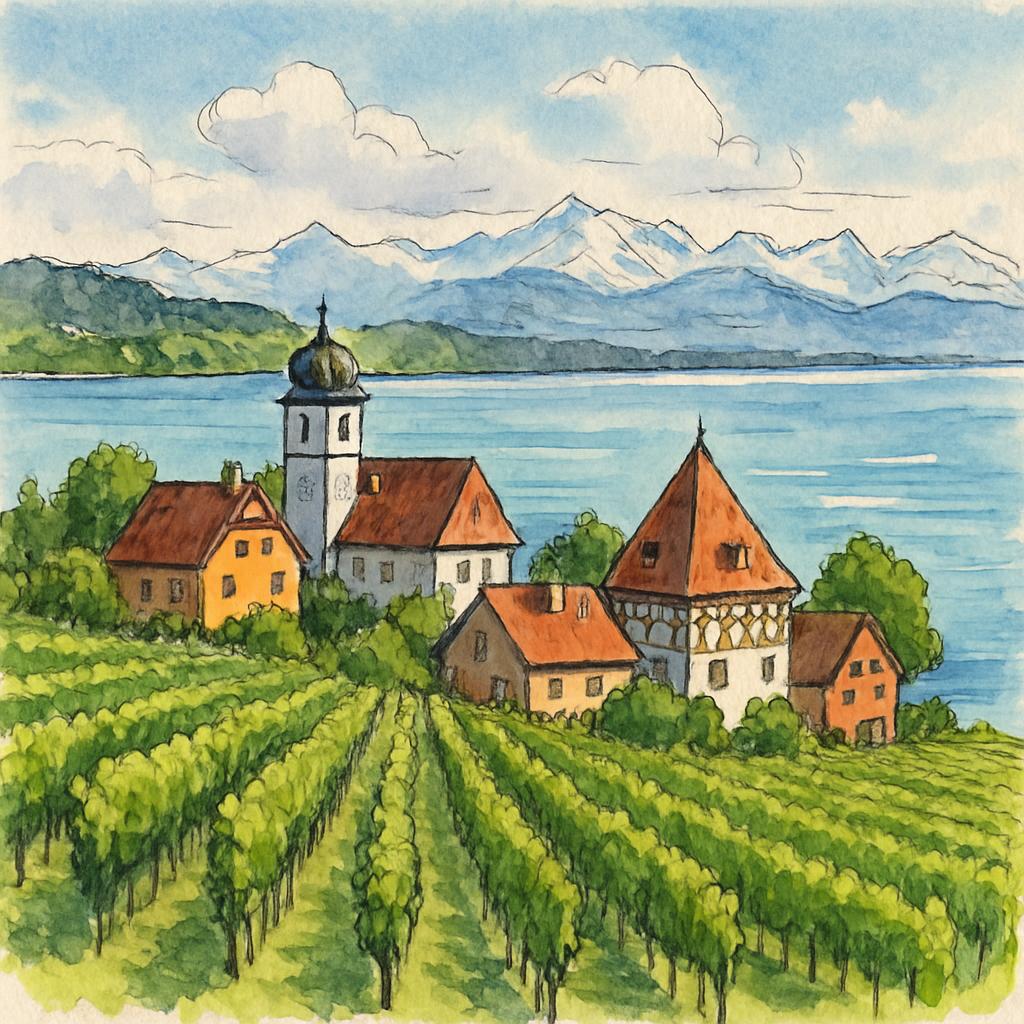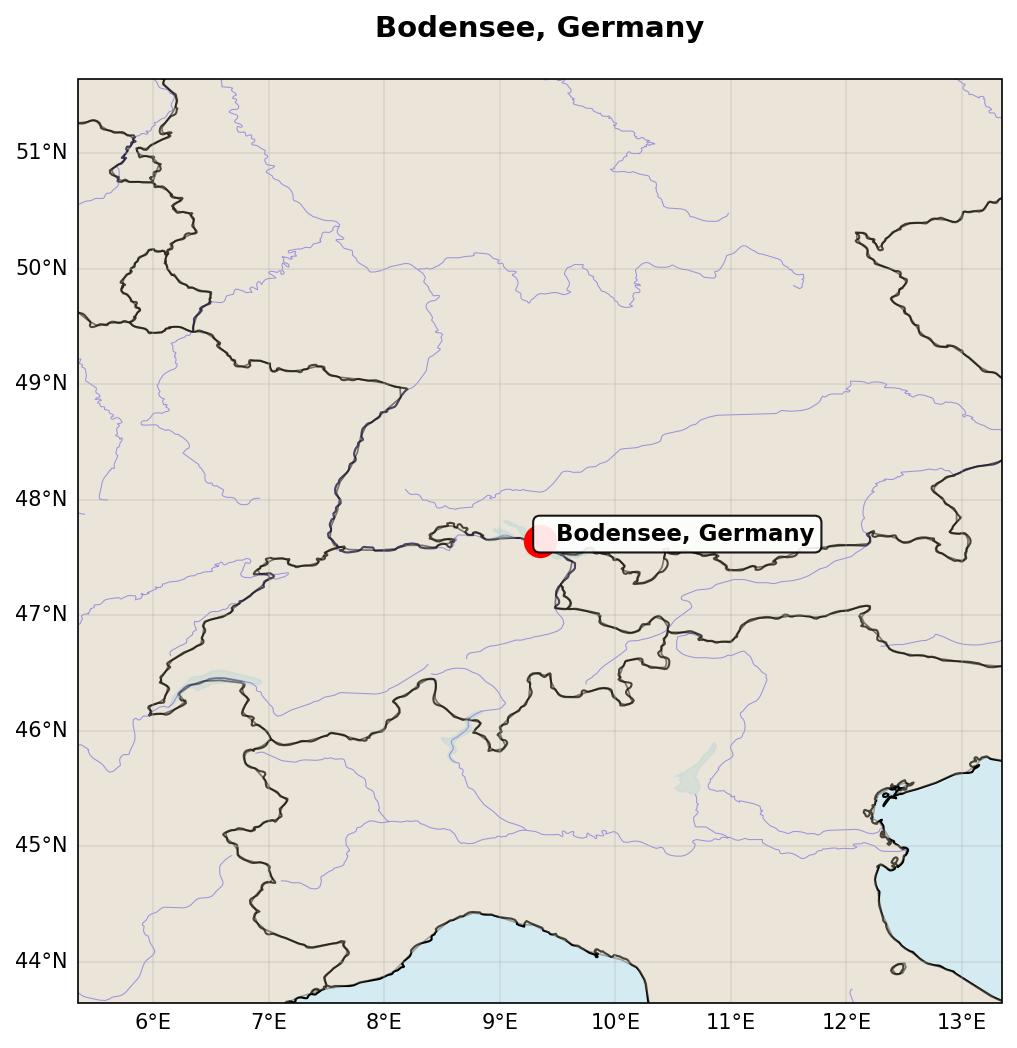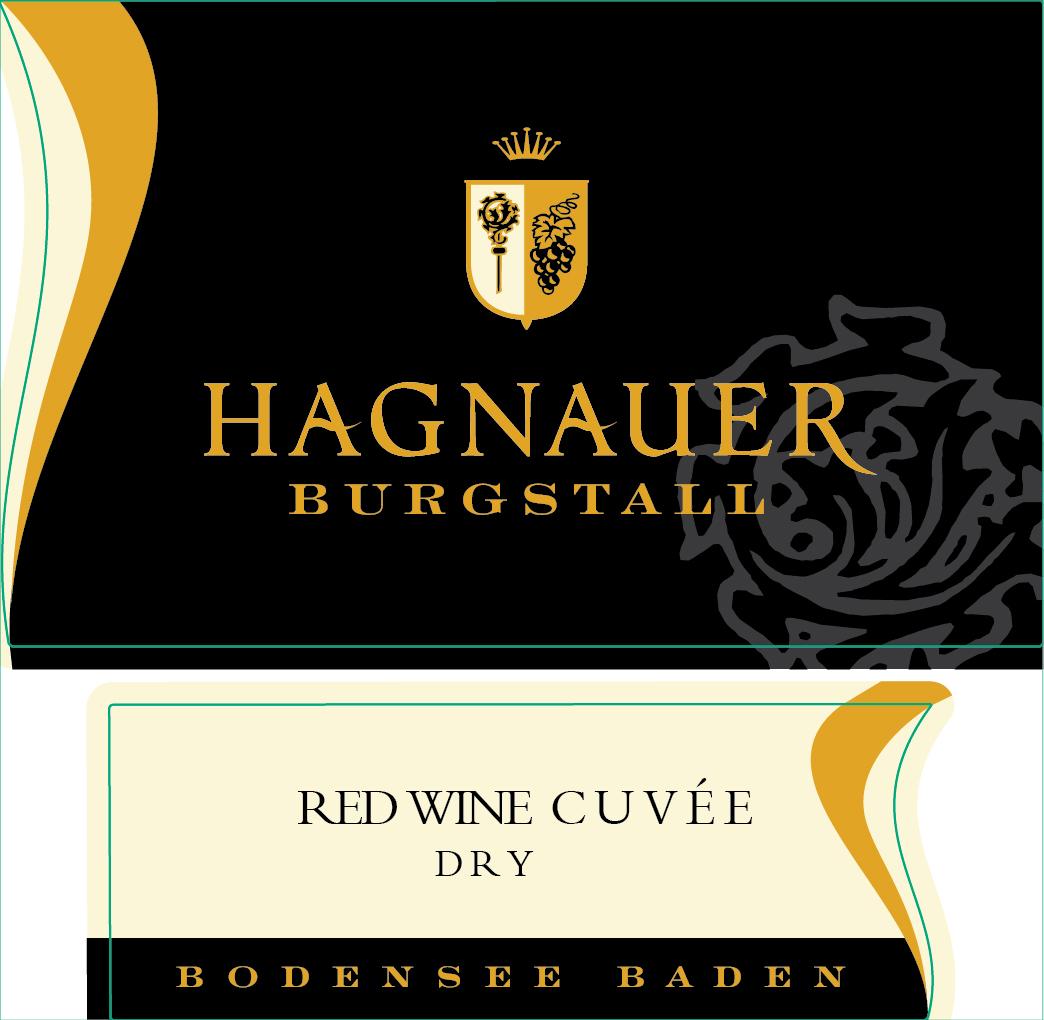Terroir of Bodensee
The Bodensee wine region enjoys a unique climate influenced by the lake, which moderates temperatures and reflects sunlight onto the vineyards. This creates a long growing season with mild winters and abundant sunshine. The cool nights play a crucial role in preserving the grapes' acidity and aromatic qualities, essential for the crisp Müller-Thurgau and elegant Pinot Blanc wines.
The vineyards, located between 400 and 560 meters above sea level, are among Germany's higher elevations. They are planted on diverse soils, including glacial moraines, gravel, sand, loess, and limestone, with volcanic touches around Hohentwiel. These varied soils and consistent lake breezes contribute to wines that are fresh, with clear fruit flavors and distinct regional characteristics. The high humidity extends the time grapes can hang on the vine, enhancing their complexity and flavor development.
Notable Wineries in Bodensee
The Bodensee region, with its picturesque vineyards and historic roots, is home to several notable wineries that exemplify the area's winemaking excellence:
-
Markgraf von Baden (Salem/Birnau): An esteemed estate renowned for its Müller-Thurgau, Riesling, and Spätburgunder wines, and also noted for Pinot Blanc.
-
Staatsweingut Meersburg: This state-owned winery excels in crafting dry and off-dry Pinot Blanc, Gewürztraminer, and Riesling.
-
Winzerverein Hagnau: Known for its fruit-forward Müller-Thurgau and Spätburgunder, this cooperative also produces Pinot Blanc.
-
Weingut Lanz (Hagnau): A family-run estate celebrated for its Spätburgunder rosé and structured Pinot Blanc, with small lots of Riesling.
-
Weingut Kress (Überlingen): Specializes in exceptional Pinot Blanc sparkling wines, still Pinot Noir, and Pinot Gris.
-
Weingut Aufricht (Meersburg-Stetten): Focuses on high-quality Müller-Thurgau, a variety of Pinot wines, and precise Riesling.
Sustainable Winemaking in Bodensee
The Bodensee wine region is increasingly committed to sustainable practices, working to protect the lake's delicate ecosystem. Many vineyards are transitioning to integrated viticulture, reducing synthetic inputs and adopting organic or biodynamic methods. Cover crops and natural weed control are widely used to maintain soil health on the region's steep terraces. Some estates are turning to renewable energy sources like solar power and biomass, alongside rainwater collection for non-drinking purposes.
Local industry groups advocate for careful canopy management to minimize mildew risk, while winemakers in the area favor gentle techniques and minimal intervention. Water conservation and lightweight packaging are becoming more common, reflecting a broader commitment to sustainability. As Bodensee winemakers strive to align with European standards, these efforts ensure the preservation of their unique lakeside environment.
Wine Tourism in Bodensee
Wine tourism in the Bodensee region offers a rich blend of natural beauty, history, and cultural experiences. Visitors can explore vineyard trails that connect charming villages, with highlights like the Bodensee cycle route and the scenic views from Hohentwiel fortress. The region's lakeside taverns provide seasonal wine tastings, paired with local foods such as lake fish and alpine cheeses.
Historic sites like Salem Castle and Meersburg's medieval castle offer tours that delve into the area's winemaking heritage. Cross-border excursions to Austrian and Swiss shores broaden the cultural experience with cellar-door tastings. Guided tours and activities, including vineyard bike tours and themed tastings, further enrich the visitor experience. Overall, the Bodensee wine region combines picturesque landscapes, international influences, and a commitment to sustainability, providing a unique setting for wine tourism.



